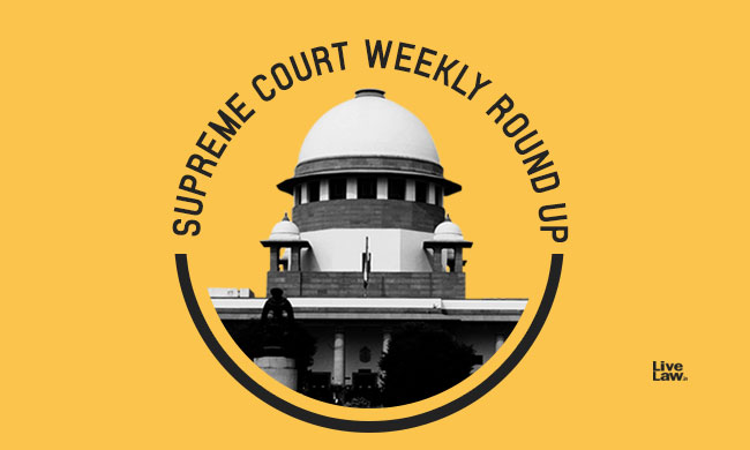- Home
- /
- Top Stories
- /
- Supreme Court Weekly Round-Up
Supreme Court Weekly Round-Up
Arabhi Anandan
17 Feb 2020 10:16 AM IST
• Settlement Between Victim & Accused Not A Valid Ground To Quash FIR/charge-sheet When Offences Are Serious & Against Society, Reiterates SC [Arjun Singh v. State of UP] The Supreme Court has reiterated that settlement between the victim and the accused cannot be a valid ground to quash the FIR. or the charge sheet when the offences alleged are against society and not...
Next Story



